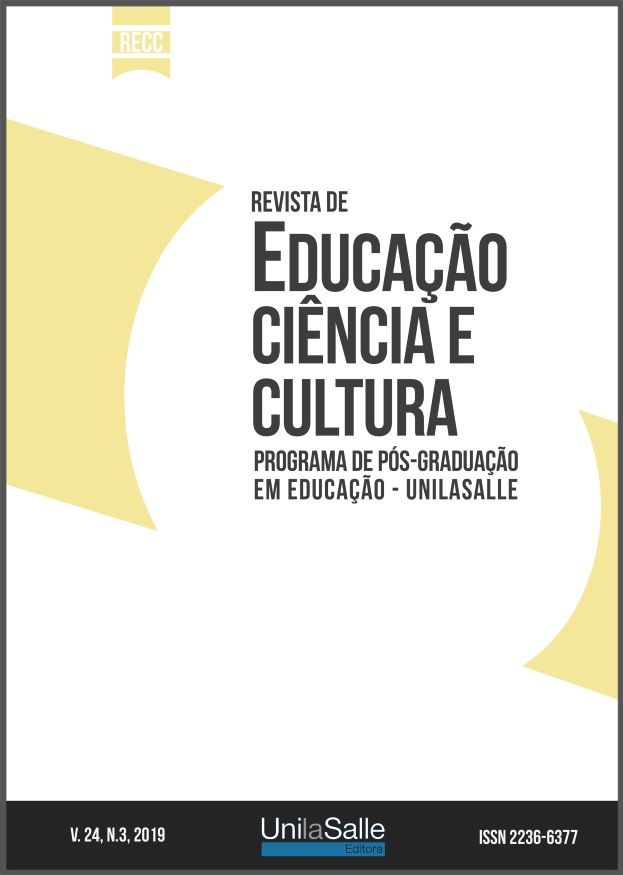The provoked dystopia. A reading on teacher education and schooling practices of attention to people with disabilities
DOI:
https://doi.org/10.18316/recc.v24i3.4597Keywords:
Teacher Education, Curricular Guidelines, People With Disabilities, Discourse Analysis, Dystopia.Abstract
This article intends to present a comparison between the curricular guidelines for teacher education and the guidelines to implement schooling practices of attention to disabilities. Considering that the operational guidelines for specialized educational services establish the role and function of that teacher who will work in such service, it consequently implies the need of specific education on the subject. We consider that such a comparison is imperative in the considerations that seek to problematize the scenario on which education happens. Moreover, it allows to approach, through the theoretical-discursive devices of those documents, a situation we call disconnected nexus, since they are not compatible – neither in terms of concept, nor in terms of the relationship between the educational guidelines and the teaching practice. In order not to reiterate the bewilderment caused by the use of certain statements, we chose as discussion references: the right to education, attention to disabilities, and scripts. From
this perspective, the text first presents how this disconnected nexus is inserted in a broader debate, in comparison
to the one that holds school and teachers responsible for overcoming inequalities. The latter is intensified when referring to disabilities, which has conveyed an idea of omnipotence to the teacher. After a brief overview on how broad the academic debate is when teacher education is concerned, and with a view to restate the complexity of the theme, we use the critical discourse analysis to report the findings in the official documents. This discussion brings us to the conclusion that the teacher is expected to be omnipotent, as well as that, the disconnected nexus allows us to refer to a situation of dystopia, especially when we think of education as having overcome the dichotomy we-they, or the common and the special.
Downloads
Published
Issue
Section
License
Authors must submit their manuscripts to be published in this journal agree with the following terms:Authors maintain the copy rights and concede to the journal the right of first publication, with the paper simultaneously licensed under the License Creative Commons attribution that permits the sharing of the paper with recognition of authorship and initial publication in this journal.
Since the articles are presented in this journal of public access, they are of free use, with their own attributions for educational and non-commercial purposes.
The Periodic Journal of Education, Science and Culture in http://www.revistas.unilasalle.edu.br/index.php/Educacao was licensed with a Creative Commons - Attribution - Noncommercial 3.0 Not Adapted.


